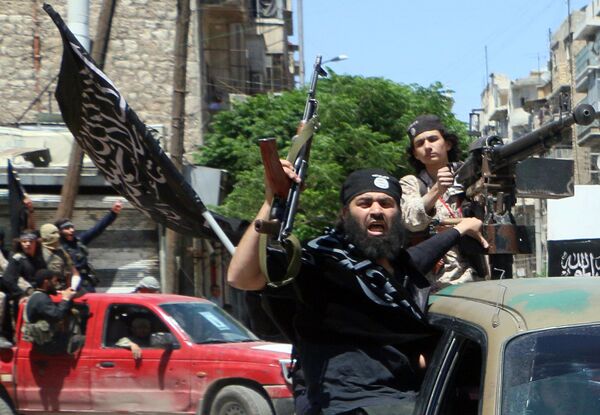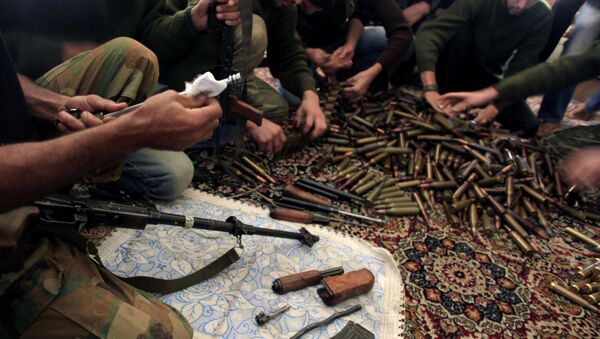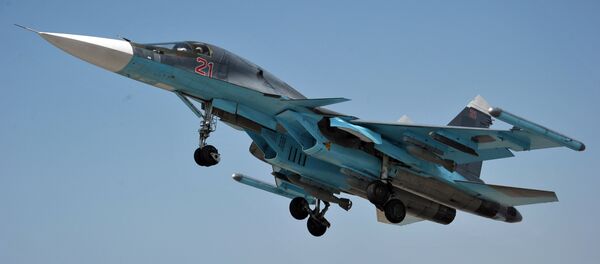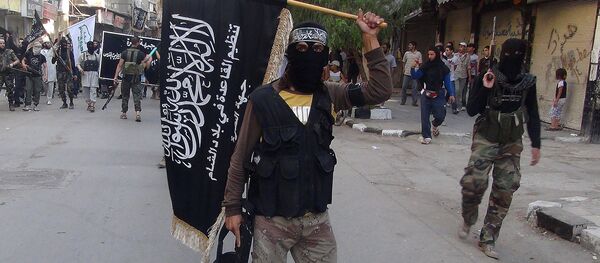To the embarrassment of the Obama administration, it turns out that the CIA-armed and trained Syrian militants have long been colluding with al-Qaeda affiliate al-Nusra Front and its close ally Ahrar al-Sham, American historian, investigative journalist and author Gareth Porter notes.
"A crucial problem in news media coverage of the Syrian civil war has been how to characterize the relationship between the so-called 'moderate' opposition forces armed by the CIA, on one hand, and the al-Qaeda franchise al-Nusra Front (and its close ally Ahrar al-Sham), on the other," Porter writes in his article for media-watchdog Fairness and Accuracy in Reporting.
That is why the Western narrative on what was going on in Syria, especially during the active phase of the Russo-Syrian joint operation on the ground, was largely distorted.
"Coverage of the Syrian war will be remembered as one of the most shameful episodes in the history of the American press," award-winning author and foreign correspondent Stephen Kinzer wrote in his Op-Ed for The Boston Globe.
"Much of the American press is reporting the opposite of what is actually happening," Kinzer remarked, referring to the media coverage of the battle for Aleppo.
"Many news reports suggest that Aleppo has been a 'liberated zone' for three years but is now being pulled back into misery," Kinzer recalled.
However, the truth of the matter is that it was actually the al-Qaeda affiliate al-Nusra Front who "liberated" Aleppo back in 2013.
"The US has remained silent about Nusra Front's leading role in the military effort against Assad, concealing the fact that Nusra's success in northwest Syria has been a key element in Secretary of State John Kerry's diplomatic strategy for Syria," Porter explains.
Fehim Tastekin of Al-Monitor explained in his February article that in addition to its strongholds in rural Idlib, al-Nusra Front had a presence in north of Aleppo, as well as in Turkmen regions of Latakia and Azaz, having significant mobilization capacity in these areas. It generally operates under the flag of its close ally Ahrar al-Sham.

It was hard to keep the fact that US-sponsored groups were fighting hand-in-hand with al-Qaeda in Syria swept under the carpet.
In their October article for The Washington Post Liz Sly and Andrew Roth admitted that Russia was targeting the sites of "recently formed coalition Jaish al-Fateh," which included al-Nusra Front and an "assortment of Islamist and moderate factions."
"What was missing, however, was the fact that Jaish al-Fateh was not merely a 'coalition' but a military command structure, meaning that a much tighter relationship existed between the US-supported 'moderates' and the al-Qaeda franchise," Porter stresses.
However, the controversy reached its climax during the US-Russian negotiations on a partial ceasefire in Syria. It was the time when Western reporters had to admit that the al-Qaeda franchise has long been intermingled with "moderate" Syrian rebels.
Citing Washington Post associate editor and senior national security correspondent Karen DeYoung, Porter stresses that DeYoung turned the spotlight on the fact that Kerry had proposed in the Munich negotiations to "leave Jabhat al Nusra [al-Nusra Front] off limits to bombing, as part of a ceasefire, at least temporarily, until the groups can be sorted out."
"Kerry's negotiating position reflected the fact that CIA groups were certain to be hit in strikes on areas controlled by Nusra Front, as well as the reality that al-Qaeda-linked al-Nusra Front and Ahrar al-Sham were central to the success of the US-backed military effort against Assad," Porter emphasizes.
The next day it was US State Department spokesperson Mark Toner's turn to openly recognize the unpleasant truth: "Yes, I believe there is some co-mingling of these groups," he said, as quoted by the investigative journalist.
The greater the truth, the greater the libel, an old British proverb says.




